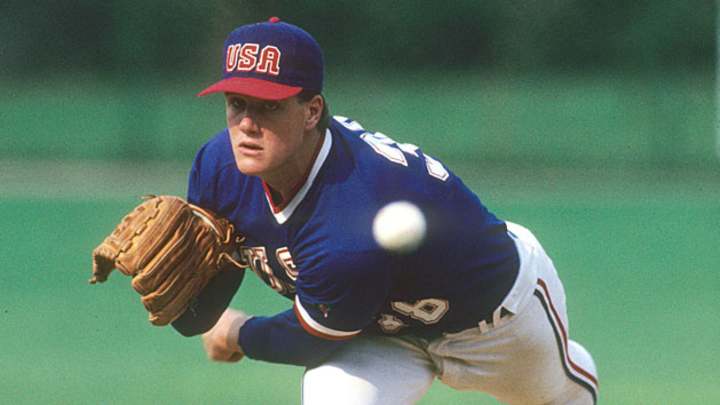Baseball diplomacy: How a changing world will change the game

This story appears in the March 21, 2016 issue of SPORTS ILLUSTRATED. TO subscribe to the magazine, click here.
If he were just some thrill-seeking tourist named Barry who wandered into Havana’s Estadio Latinoamericano, President Obama would get a full-blast feel for the tattered, drum-pounding glory that is Cuba’s national pastime. “It’s an entirely different experience playing baseball there than in the United States,” says former major league pitcher Jim Abbott. “The intensity of the crowd, the dancing, the music: Bryce Harper would love it.”
But because next week he’ll become the first U.S. president to set foot in Cuba since Calvin Coolidge, because he’ll be there to promote his 16-month-old initiative to open relations with the Castro-ruled nation and because a ballpark provides the most obvious patch of common ground for Americans and Cubans, Obama’s experience can’t help but be watered down. There will be ceremony and posturing when he shows up for the Rays’ March 22 exhibition vs. the Cuban national team. Smothering security, minutely dissected handshakes, thousands of dull, carefully vetted “fans”: It is ever thus, when high-level pols belly up to the USA-Cuba baseball rivalry. Everyone behaves according to plan.
Indeed, the unexpected happened only once, when baseball realized the barrier-breaking potential of “Ping-Pong diplomacy,” when the game’s ability to blow past terms like missile crisis and Bay of Pigs revealed itself like a sudden, breaching whale. For good reason. Jim Abbott was one of a kind, too.
SI Vault: El Duque: Orlando Hernandez goes from Cuba to the Yankees
This was July 1987, one month after Ronald Reagan called for the Soviet Union to tear down the Berlin Wall. Down 0–2 in a five-game tour of Cuba, Team USA sent Abbott to the Latinoamericano mound for Game 3. Born without a right hand, the University of Michigan sophomore, on his first trip abroad, had been an obsession on the island from the moment he landed. Cubans stared and cheered each time he took the field. Now, when he was introduced, 50,000 Cubans rose for a standing ovation.
“I’d never felt like a star like that,” Abbott says.
Then Victor (El Loco) Mesa, the antic, mouthy centerfielder, led off with a tricky grounder to the third base side of the mound. Abbott trapped the ball between glove and hand, fired to first for the out, “and the place just went crazy—jumping up and down, giving Mesa a hard time as he went back to the dugout,” Abbott says. “From then on, it just seemed like they were on my side.”

With Fidel Castro watching from the stands, Abbott gave up three hits in five-plus innings and earned every bit of the 8–3 win. When he and coach Ron Fraser tried to reach the team bus after the game, they were swarmed by shouting, grinning Cuban faces—all taught from birth to resent Yanqui might. Abbott had played before sympathetic crowds in the U.S., but not like this. “A kid like you, one hand, would never even have the chance to play in Cuba’s national program,” his interpreter explained. Says Abbott, “It was one of the moments I cherish.”
It didn’t stop there. Two years later, during Abbott’s rookie season with the Angels, a request made its way to the clubhouse: Fidel wanted his autograph.
• Subscribe to get the best of Sports Illustrated delivered right to your inbox
When I first traveled to the island in 1991, not once did a native ask about Havana-born Jose Canseco, then the island’s most famous export. But for the next decade, even as his career faded up north, they all spoke of Abbott with awe.
As the president who opened diplomatic relations with Cuba and called for an end to the U.S.’s 55-year-old trade embargo, Obama will inspire similar reverence. His trip to Havana signals a new era, even as the regime’s human-rights abuses continue and upgrades in daily life for Cubans come slowly. Yes, new embassies, relaxed travel rules and baseball games mean progress, but the embargo still largely forbids U.S. citizens from doing business in Cuba—and only an act of Congress can reverse it.
Major League Baseball, meanwhile, has been exploring new policies toward Cuban players—if only to prevent trafficking abuses—and has made proposals to the Treasury Department office charged with enforcing the embargo. But with fears over the sustainability of the Cuban league and the regime’s insistence on a cut of player contracts, not to mention MLB’s looming contract negotiations with the Players Association, a resolution that provides a direct, hazard-free Cuba-U.S. pipeline is hardly imminent.
“Hopefully it’s a 2016 thing,” says Dan Halem, Major League Baseball’s chief legal officer. “It’s not going to be soon, even if there’s dual-track negotiations with everyone.”
But it will happen. Obama’s day at the ballpark figures to be the most dramatic step yet in the long, tortured run toward normalization, but not the last. Abbott, the one American to beat Cubans at their own game and make them love it, has never returned. “I’m glad to see good things happen between our two countries,” he says. “Who knows? Maybe someday I’ll be able to get back there to say hi. That would be kind of cool.”
S.L. Price is an SI senior writer and the author or the book Pitching Around Fidel: A Journey Into the Heart of Cuban Sports. To purchase a copy, click here.
